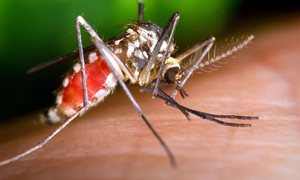
Lifelong use of the drug eculizumab is not necessary in the rare kidney disease atypical hemolytic uremic syndrome (aHUS). Most patients already benefit from three months of treatment. The manufacturer recommended lifelong treatment, which cost up to 450,000 euros per person per year. This shorter treatment has saved 50 million euros in four years.
In the kidney disease atypical hemolytic uremic syndrome (aHUS), blood clots form in the small blood vessels of the kidneys. Patients develop anemia, platelet deficiency and kidney damage. This leads to kidney failure. It is a rare condition, with five to 10 new patients in the Netherlands each year, both among children and adults.
Patients can be treated with the drug eculizumab. With this treatment, the affected small blood vessels in the kidney repair, eliminating the blood clots in them. But eculizumab is so expensive - up to over 450,000 euros per patient annually and for life - that its reimbursement was in jeopardy.
Three months is enough
In response, nephrologist Jack Wetzels and pediatrician-nephrologist Nicole van de Kar of the Radboudumc, together with the aHUS workgroup and Kidney Patients Association of the Netherlands, initiated a nationwide study into the shortened administration of the drug eculizumab. With good results, explains Nicole van de Kar, affiliated with the Amalia Children's Hospital: "The initial evaluation shows that in most patients administration can be stopped after three months, and restarted in case of relapse. In those who need the drug longer, the time between administrations can be extended.' The results of this study have now been published in the scientific journal Kidney International Reports.
50 million euros in four years
In recent years, this new treatment protocol has shown that this restrained use is possible and safe. Van de Kar: "We have saved 70 percent in costs - that involved over 50 million euros in four years. We've also gained more insights into this rare disease; we can use these in the future. In addition, Van de Kar hopes that this treatment will be introduced more widely. She will be working hard for that in the coming years. Also important, she says, are good instructions for patients to recognize a relapse. 'It is also essential that the treatment team is easily accessible. Good direction and concentration of knowledge in an expertise center are prerequisites for successful implementation.'
Publication
This article appeared in Kidney International Reports: Early Eculizumab Withdrawal in patients with aHUS in native kidneys is Safe and Cost-Effective: results of the CUREiHUS study - R.N. Bouwmeester, C. Duineveld, K.L. Wijnsma, F.J. Bemelman, J.W. van der Heijden, J.A.E. van Wijk, A.H.M. Bouts, J. van de Wetering, E. Dorresteijn, S.P. Berger, V. Gracchi, A.D. van Zuilen, M.G. Keijzer-Veen, A.P.J. de Vries, R.W.G. van Rooij, F.A.P.T. Engels, W. Altena, R.de Wildt, E. van Kempen, E.M. Adang, M. ter Avest, R. ter Heine, E.B. Volokhina, L.P.W.J. van den Heuvel, J.F.M. Wetzels, N.C.A.J. van de Kar. DOI: 10.1016/j.ekir.2022.10.013.
Share this post on social media? Click the share button at the top right of the blue bar and choose from Facebook, Twitter or Linkedin.
-
Want to know more about these subjects? Click on the buttons below for more news.
More information
Pauline Dekhuijzen

wetenschaps- en persvoorlichter
Related news items

Grants for research on magnesium deficiency and malaria Vidis for Felix Hol and Jeroen de Baaij
1 July 2022 Radboudumc researchers Jeroen de Baaij and Felix Hol both receive an NWO Vidi grant for their research, respectively on magnesium deficiency in type 2 diabetes and on malaria. read more
Field research on malaria vaccine offers unexpected surprise
23 May 2022Field research on the effectiveness of a malaria vaccine, came up with unexpected results for an international group of researchers including Benjamin Mordmüller of Radboudumc. The vaccine evokes a broader response against malaria proteins than there are in the vaccine.
read more



